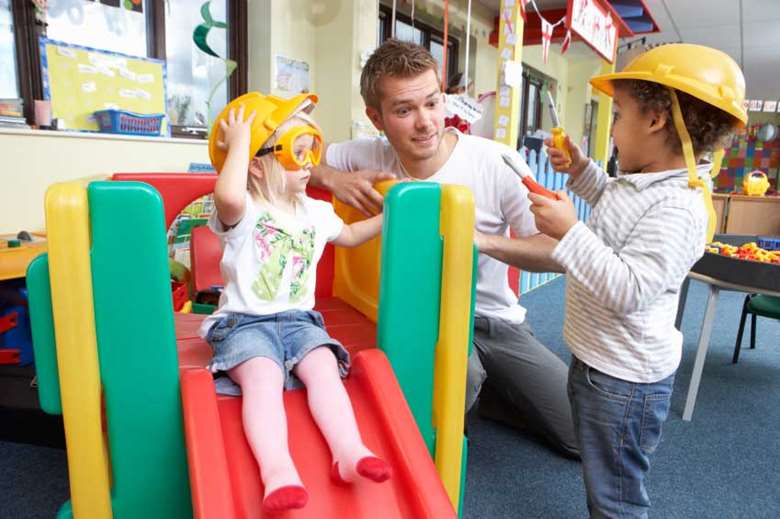Children's centres move away from universal services to target poorest
Catherine Gaunt
Friday, July 19, 2013
The extent to which children's centres are changing in the face of local authority cuts and Coalition Government policy is highlighted in the latest report from the Evaluation of Children's Centres in England.

The research by the University of Oxford with NatCen finds that despite pressure on funding and re-organisation, children’s centres are continuing to work with families from the poorest areas.
In line with Government thinking, most centres are reducing their universal offer and focusing on targeting the most disadvantaged.
The prototype of a children’s centre within ‘pram-pushing’ distance for parents has ‘shifted dramatically’ to networks and clusters, the research found.
The most frequently used services are stay and play, parenting programmes, early learning and childcare, supporting volunteers and volunteering, and breastfeeding.
The ECCE evaluation is focusing on the first two phases of children’s centres in England.
Researchers visited 121 children’s centres during 2012 to observe their work and staff filled in a questionnaire.
Professor Kathy Sylva, co-author of the report, said, ‘All public services have been cut and asked to target services at the most vulnerable families and we found they’re doing this. They’re making real efforts to target the most vulnerable families. The downside is because there are fewer funds you can’t re-double your efforts for vulnerable families without taking something away. If you have staff visiting people in their homes, who’s going to run the stay and play?’
This means, for example, that stay and play sessions might be only running at one centre in a cluster, making it harder for parents to access them.
Management and staffing have also been affected – ‘fewer staff appeared to be doing more things.’
In one centre the weekly visit from JobCentre Plus has been replaced by a noticeboard.
The research says that as with all public services, children’s centres have had to make hard decisions about deploying staff and priorities.
Some services have reduced what they offer every week and there was less time to meet with other partner agencies.
The report said, ‘More importantly, the centre manager who used to manage one centre has been "promoted" to managing three, at almost the same salary. She regrets not having time to talk with her new staff about training opportunities or even to chat about their own families at home.’
It adds, ‘On the plus side, few children’s centres have actually closed, but many are struggling on short rations with staff feeling the stress of too much to do, with too little time to do it. In keeping with Government policy most have prioritised their work with the most vulnerable families.’
Professor Sylva added, ‘The job has got harder and we were so impressed with the quality. It’s extraordinary how committed staff are.’
The majority of the phase 1 and phase 2 centres were located in the 30 per cent most deprived areas on the Income Deprivation Affecting Children measure (IDACI).
Nine per cent were located in less deprived areas, although they drew nearly a third of their users from the most deprived areas.
Most families using children’s centres lived very near to them. Thirty per cent lived less than 500 metres away, 61 per cent less than 1 km away and 78 per cent less than 1.5 km away.
Early Intervention
The report found that there was general agreement about the value of evidence-based practice.
The majority of the centres were using proven early intervention strategies from the ‘Allen’ list (compiled by Graham Allen), particularly Incredible Years, Triple P, and Family Nurse Partnerships, but these reach very few users: the typical centre was running two groups for parents each year, reaching around eight to 12 parents.
However, centres were also using programmes not on the list, but for which there is growing research on their effectiveness, such as baby massage, Every Child A Talker and PEEP.
The authors said, ‘While these programmes were not backed by randomised trials, they were found to be less expensive to deliver and were able to reach greater numbers.’
- The next phase of the ECCE research will look in depth at how centres cater for parents, for example through parenting groups and other specific support, and will be published in Spring 2014.




